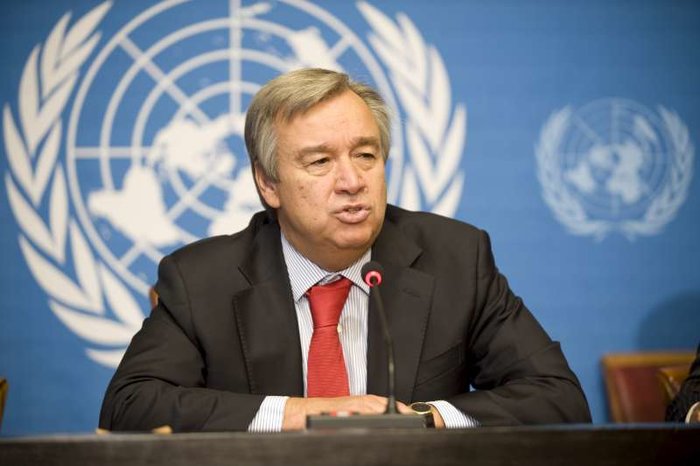The United Nations chief on Monday repeated a call for nations to impose a "solidarity tax" on people who have profited during the pandemic as a way to tackle extreme poverty.
"Reports indicate a $5 trillion surge in wealth of the richest in the past year. Yet, 120 million people have been pushed into extreme poverty. I urge governments to consider a solidarity or wealth tax on those who have profited during #COVID-19, to reduce extreme inequalities," Antonio Guterres said on Twitter.
The UN secretary-general has been pushing countries to tax the wealthy to address widening income inequality within and between nations. During an address at an event focused on the needs of the least-developed countries on Friday, Guterres again made this call, urging countries to "find ways of redressing the balance".
At the event, Guterres also called on the G20 group of nations to extend debt service suspension into 2022 and help lower- and middle-income economies recover from the pandemic.
"But there also needs to be real debt relief. The Common Framework must be complemented with initiatives and instruments so that participating countries are not penalized with downgrades to their credit ratings," said Guterres, referring to the group's plan to ease countries' debt burdens.
The pandemic has disrupted global supply chains and crushed the global economy, but many people have also gotten richer through the crisis.
Over a roughly seven-month period starting in mid-March last year, a week after then-US president Donald Trump declared a national emergency, the United States' 614 billionaires grew their net worth by a collective $931 billion, according to 24/7 Wall St, a financial news platform.
The net worth of Jeff Bezos, founder of e-commerce giant Amazon, nearly doubled to over $200 billion during the pandemic as more people switched to online shopping.
In April, Amazon reported $108.5 billion in sales in the first three months of the year, an increase of 44 percent from a year earlier.
Facebook has also benefited from the pandemic due to the growing number of visitors to the social networking site. In April, Facebook said its revenue rose 48 percent to $26.2 billion in the first three months of the year, while profits nearly doubled to $9.5 billion.
California-based Netflix experienced a significant surge in memberships due to stay-at-home orders from governments around the world. The streaming service's revenue grew 24 percent year over year.
The Office of the UN High Commissioner for Human Rights found in 2017 that more than one in every eight people in the US were living in poverty. Almost half of these 40 million people-18.5 million-were living in deep poverty, with reported family incomes of less than half the poverty threshold.
By most indicators, the US is one of the world's wealthiest countries. It spends more on national defense than China, Saudi Arabia, Russia, the United Kingdom, India, France and Japan combined.
However, the levels of inequality in US are far higher than those in most European countries, the UN report said.
The UN's independent experts regularly undertake country visits to report on human right issues and extreme poverty. Their last visit to the US was in 2017.
The official poverty rate in 2019 in the US was 10.5 percent, down 1.3 percent from 11.8 percent in 2018, the US Census Bureau reported.
According to the UN, a person is considered to be in extreme poverty when he or she is living on less than $1.90 a day.
The COVID-19 pandemic threatens to reverse decades of progress in the fight against poverty and exacerbating the existing high levels of inequality within and between countries, the UN said.
The UN said that the economic fallout from the pandemic could increase global poverty by as much as half a billion people, or 8 percent, of the total human population. This would be the first time that poverty has increased globally in 30 years.
More about: #UN
















































